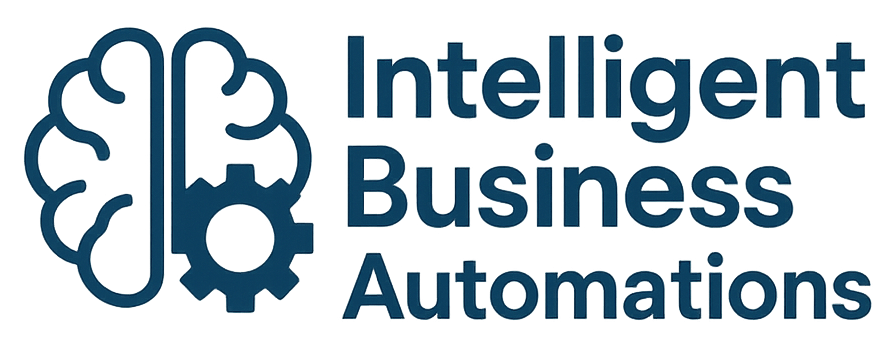AI Resume Screening & Candidate Ranking for Small Businesses
- Discover how AI automates resume screening and ranks top candidates
- Learn how AI tools reduce hiring bias and support compliance
- Understand how to integrate these tools with your ATS and HR workflows
- Explore recommended platforms designed with small businesses in mind
Introduction
In the competitive battle for top talent, small businesses often lack the time and HR bandwidth to sort through hundreds of applications. That’s where AI resume screening tools can help.
These tools are designed to streamline the early stages of hiring—saving time, reducing bias, and helping your team focus on what matters most: hiring the right person for the job.
Challenges of Manual Resume Screening
Volume Overwhelm
Even a single job post can attract dozens to hundreds of applications—especially if remote-friendly or posted on high-traffic job boards. Reviewing them one by one isn’t scalable for a small HR team.
Time Constraints
Small business teams are already wearing multiple hats. Spending hours reviewing resumes can delay other essential tasks—hurting productivity and delaying growth.
Inconsistent Evaluation
Human reviewers apply different criteria at different times. Fatigue, assumptions, and mood can unintentionally color decisions, leading to imperfect shortlists.
Delay Costs
The longer a great candidate waits, the more likely they’ll accept another offer or disengage entirely. Time is not just money—it’s talent lost.
How AI Parses and Scores Resumes
Natural Language Processing (NLP)
AI uses NLP to read resumes like a human—but faster. It converts unstructured resume content into structured, searchable data, identifying work history, skills, education, and more.
Keyword Matching
AI models compare resumes to the job description using tailor-made or pre-set criteria. They pick up on both exact matches and relevant synonyms.
Scoring Mechanism
Candidates are automatically ranked based on how well their background aligns with your job requirements, key skills, experience level, and education.
Resume Filtering
Unqualified applicants are filtered out early. That way, you’re reviewing a curated list—not the entire stack.
Matching Skills and Experience to Job Requirements
Skill Taxonomies
Modern AI uses built-in libraries of standard roles, skill sets, and job competencies to interpret resumes accurately—even when titles or phrasing vary.
Contextual Understanding
These tools understand that “account management” and “client engagement” might mean the same thing. The AI looks beyond surface terms to base its matching on real meaning.
Prioritizing Must-Have vs. Nice-to-Have
You can define which skills are essential and which are optional. The algorithm weighs this in its rankings so you see top-fit candidates first.
Minimizing Unconscious Bias and Ensuring Compliance
Blind Screening Features
Many AI solutions can anonymize irrelevant info like names or graduation years, helping prevent assumptions based on demographic clues.
Consistent Criteria
AI applies the same screening logic to every applicant—removing variability and making the process more equitable.
Regulatory Compliance
Some platforms are designed with EEOC standards in mind and can generate audit-ready reports to support compliance reviews.
Ethical Screening Matters
Look for tools that use explainable models—ones that let you understand why certain candidates are ranked higher.
Integrating Screening Tools with Applicant Tracking Systems
ATS Compatibility
Many AI screening tools seamlessly integrate with platforms like BreezyHR, Workable, or Greenhouse—so you don’t have to overhaul your current process.
Workflow Efficiency
Once resumes come in, AI tools can automatically score and flag top candidates—or even schedule the next round.
Data-Driven Decisions
With built-in reporting and analytics, you can track who’s applying, where strong candidates drop off, and how long hiring takes—so you improve recruitment every cycle.
More Time for People Work
By automating early screening, your team has more bandwidth to focus on interviews, culture fit, and onboarding with care.
Top AI Resume Screening Platforms for Small Businesses
- Manatal — Known for budget-friendly pricing and an intuitive AI engine that scores candidates based on job fit, experience, and soft skills.
- Vervoe — Blends resume screening with skills assessments so you can gauge ability, not just background.
- Pymetrics — Uses neuroscience-based games to assess cognitive and emotional traits, delivering unexpected candidate insights.
- Skillate — Offers fast integration and strong keyword intelligence, perfect for small businesses ready to scale hiring.
- Fetcher — Combines sourcing and AI screening in one, ideal for lean teams needing efficient outreach and vetting.
These platforms are designed to be easy to use, affordable, and practical—without needing a tech team to get started.
Help Getting Started with AI Screening Tools
You don’t need to figure out AI on your own. That’s our job.
If you’re wondering where to start, explore tailored AI solutions for small businesses—including resume screening integrations and step-by-step guides.
Or if you’d rather talk it through, you can connect with a coach for guidance on integrating AI hiring tools into your current process.
Conclusion
AI resume screening and candidate ranking tools help small businesses:
- Speed up hiring by hours—or even days
- Reduce unconscious bias and maintain compliance
- Prioritize high-fit applicants without manual sorting
- Free HR teams to focus on people, not paperwork
AI-enabled hiring doesn’t need to be a luxury just for enterprise HR teams. With the right tools and support, even small businesses can hire smarter, faster, and more fairly.
Want help choosing your first AI hiring tool? We’ve simplified your options here.
